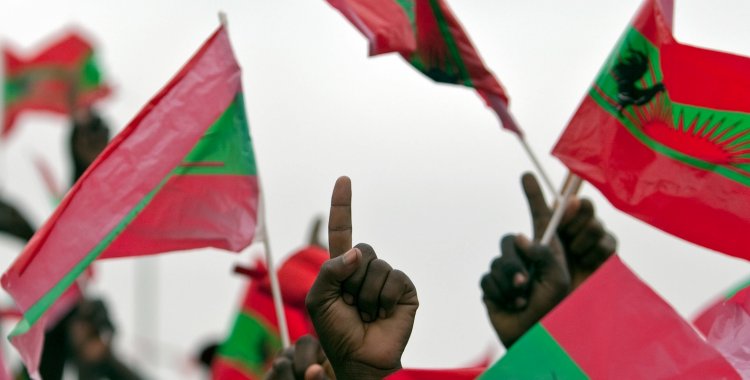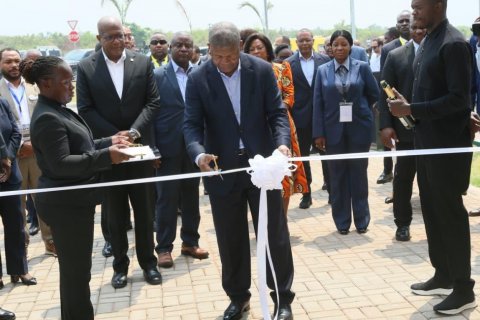In a statement released Tuesday, the permanent committee of the Political Commission of the National Union for the Total Independence of Angola (UNITA) denounced an alleged "macabre plan of implosion of UNITA, orchestrated by the regime, through the grooming of its cadres".
In the statement, UNITA says that the alleged "macabre plan" is also being materialized through "partisan propaganda disseminated in the state information organs, the instrumentalization of the President of the Republic's support organs and the country's Intelligence Services targeting UNITA's president," Adalberto Costa Júnior.
The party also appeals to the organized civil society, to the living forces of society in general, to the youth and to all Angolan patriots to unite in a "broad patriotic and democratic front for the materialization of the transformations that the country requires.
The largest Angolan opposition party urges, in its communiqué coming out of the fifth ordinary meeting of its permanent committee, held on Monday, "all citizens to demand a credible electoral process".
For UNITA, a credible electoral process must include "an independent electoral administration composed of members of unquestionable moral and ethical standing, where the National Electoral Commission (CNE) must reflect, in its leadership, this moral imperative.
An organization that leads to "free, fair and transparent elections accepted by all without acrimony", a universal electoral register, "absolute equality" of competing parties and voters are, for the political party, other requirements for credible elections.
The parliament is expected to consider, in a final vote this Wednesday, legislative initiatives by the majority and the opposition to amend the Organic Law on General Elections and the Law on the Official Electoral Register.
The discussion of these laws has been the subject of heated debate among deputies, who are seeking consensus with a view to the general elections scheduled for 2022.
In a statement on Tuesday, UNITA said that the proposed amendment to the Organic Law on General Elections, an initiative of the MPLA, "removes the credibility of the electoral process by suppressing the counting of votes in the municipalities and in the provinces, as well as the reduction of deadlines for the delivery of voter registration files to the CNE".
A group of young activists, who on Monday intended to protest in front of the National Assembly, for "smoothness and transparency" in the discussion of electoral laws, were prevented by police officers, and some were even arrested.
UNITA praises the courage of "all those who have demonstrated in defense of their constitutionally enshrined rights and says it stands in solidarity with the young people who demonstrated on Monday outside the National Assembly to demand fairness" of the electoral laws.
The first phase of voter registration, throughout Angolan territory and abroad, begins in September and runs until next December, and the second phase is scheduled between January 5 and March 31, 2022.
The "aggravation of the social and economic situation of the country, with the increase of poverty, the generalization of hunger and malnutrition focuses in children, the bankruptcy of companies, the increase of unemployment" and others were equally deplored by UNITA.
UNITA's permanent committee also expresses "great concern for the crisis that prevails in the health and education systems", noting that more than five million children will not be able to study in this school year (2021/2022), which officially starts on Wednesday, due to the "lack of teachers and educational establishments".
According to the party led by Adalberto Costa Júnior, the fight against corruption, one of the axes of governance of the President, João Lourenço, "remains selective, punishing a few and protecting others through the abusive use of simplified contracting".







